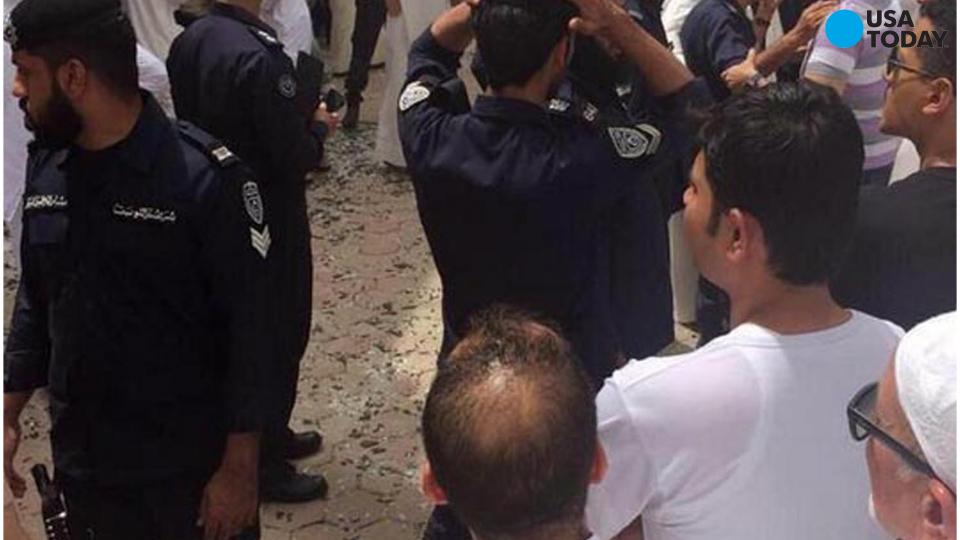Kuwait conducts mass funeral as police question suspects

Chanting "Sunnis and Shiites are brothers!" Saturday, thousands of mourners joined a mass funeral procession in Kuwait City for 27 people killed in a suicide bombing at a Shiite mosque a day earlier.
Sunni groups in Kuwait and leaders from across the Middle East condemned the attack, for which the Islamic State claimed responsibility. Gulf authorities believe the militants want to provoke a sectarian war between the region's Sunni and Shiite sects, the Associated Press reported.
The government helped plan Saturday's mass funeral for those killed, according to the AP.
About a third of Kuwait's 3.6 million residents are Shiite Muslims. The majority of Kuwaitis are Sunni Muslims.
The blast at the Imam Al-Sadiq Mosque during Friday prayers in Kuwait's capital also injured 227 people, 40 of whom remained hospitalized Saturday, according to the official Kuwait News Agency or KUNA.
The Islamic State also claimed responsibility for Friday's attack on a beachfront hotel in Sousse, Tunisia, where a gunman killed 39 people. In France, a man with extreme Islamist ties was arrested after authorities say he beheaded his boss and caused an explosion Friday at an American-owned gas plant.
Official and public reactions to Kuwait's first major terrorist attack in 20 years were swift.
Police arrested 18 suspects, according to the Kuwait Times newspaper. They include the owner of the car driven by the bomber to the mosque. The bomber died when he detonated his bomb among worshipers.
Kuwait's ruler, Sheikh Ahmad al-Sabah, condemned the blast during the Muslim holy month of Ramadan. "The blast was meant to tear asunder the fabric of the well-knitted Kuwaiti society by fomenting sectarian divisions and conflicts," al-Sabah said in an official statement. "But that would not happen as Kuwaitis value their unity and societal solidarity."
Some 1,250 Kuwaitis have volunteered to give blood since Friday's attack, Rana Abdulrazzaq, an official at the Kuwait Blood Bank told KUNA.
Kuwait's minister of justice and Islamic affairs, Yaqoub Al-Sanea, said the incident shows the need to improve surveillance and counter extremist ideology, KUNA reported. The ministry created a committee to produce sermons demonstrating the moderation of Islam for Friday prayers, the Muslim Sabbath, Al-Sanea said.
"It does not need only to install surveillance cameras, but also to address the extremist thought, which is a stranger to the Kuwaiti society," he said.
U.S. counterterrorism officials, however, has previously said oil-rich Kuwait is a major source of funding for Sunni Muslim terrorist groups operating across the Middle East. The U.S. Treasury last year sanctioned two Kuwaitis it accused of providing money, fighters and weapons to extremists with the Islamic State in Iraq and Syria.
Treasury's David Cohen, under secretary for terrorism and financial intelligence, said in March 2014 that "a number of fundraisers" in Kuwait and Qatar solicit donations for extremist groups, including al-Qaeda's affiliate in Syria, the al-Nusrah Front, and the Islamic State. Much of the fundraising happens in Kuwaiti mosques under the guise of helping the Syrian people embroiled in a civil war, Cohen said.
"Our ally Kuwait has become the epicenter of fundraising for terrorist groups in Syria," Cohen said in a speech to the Center for a New American Security in Washington.
U.S. officials had urged Kuwait to stem the flow of money to terrorists, and offered help in that effort, Cohen said.